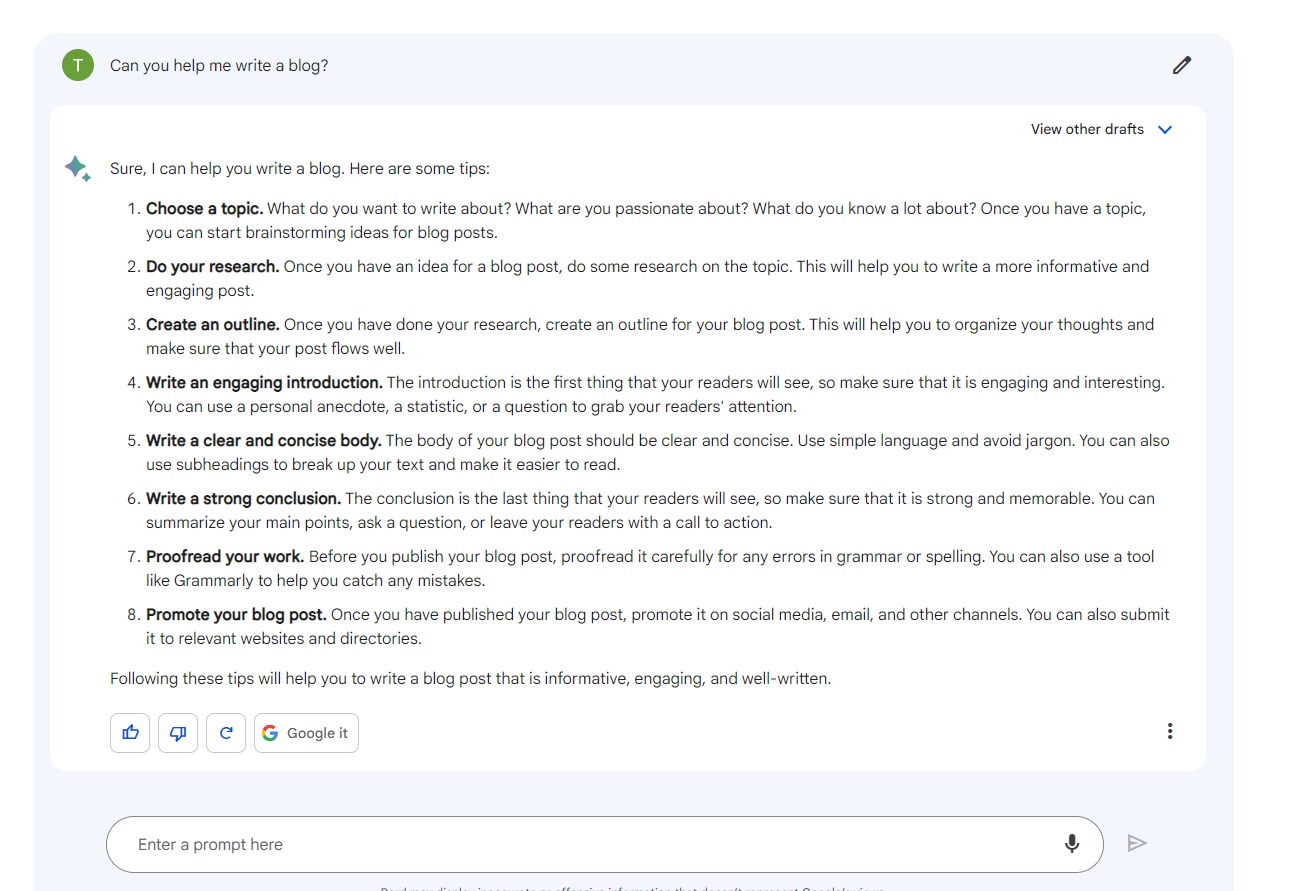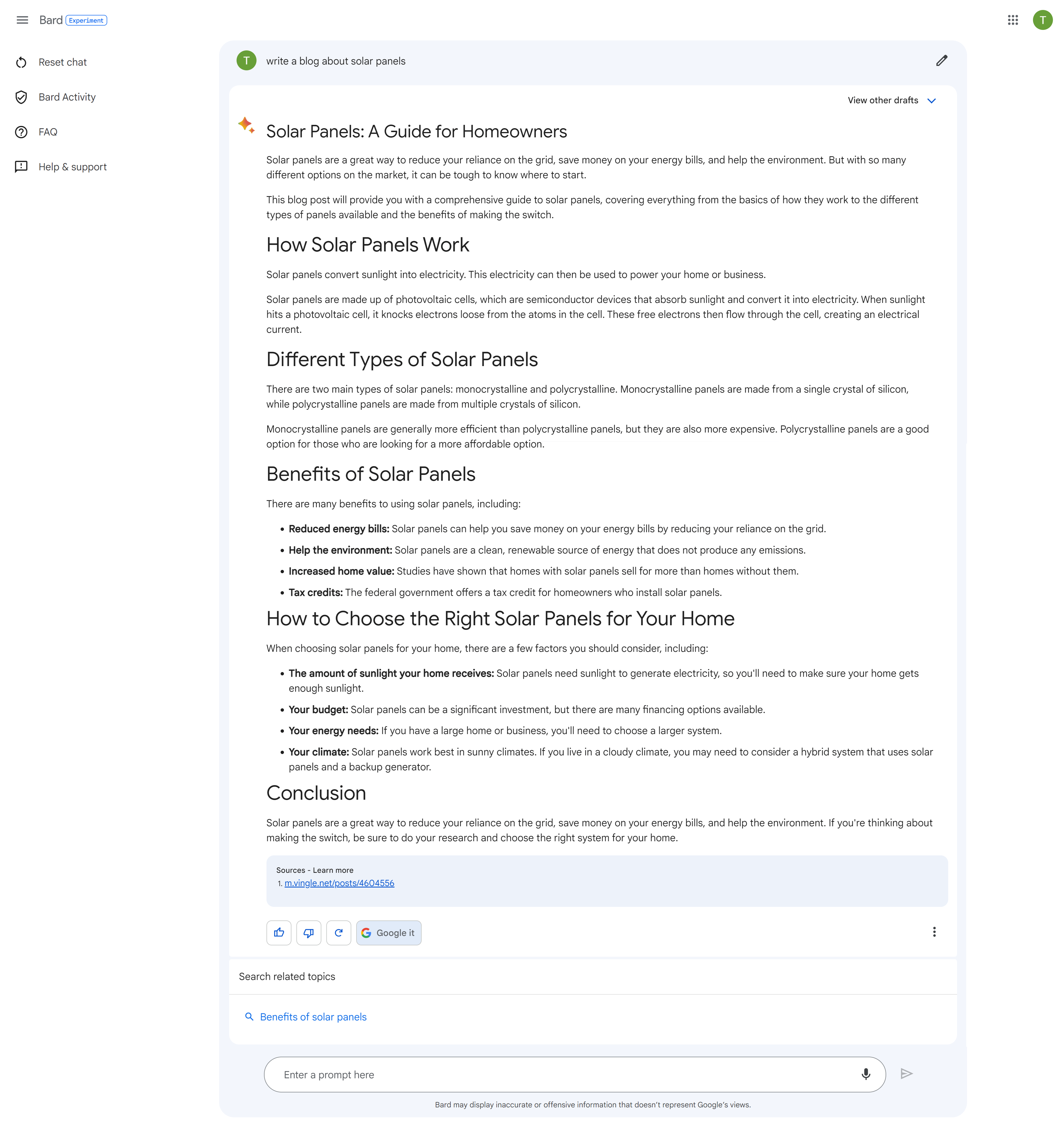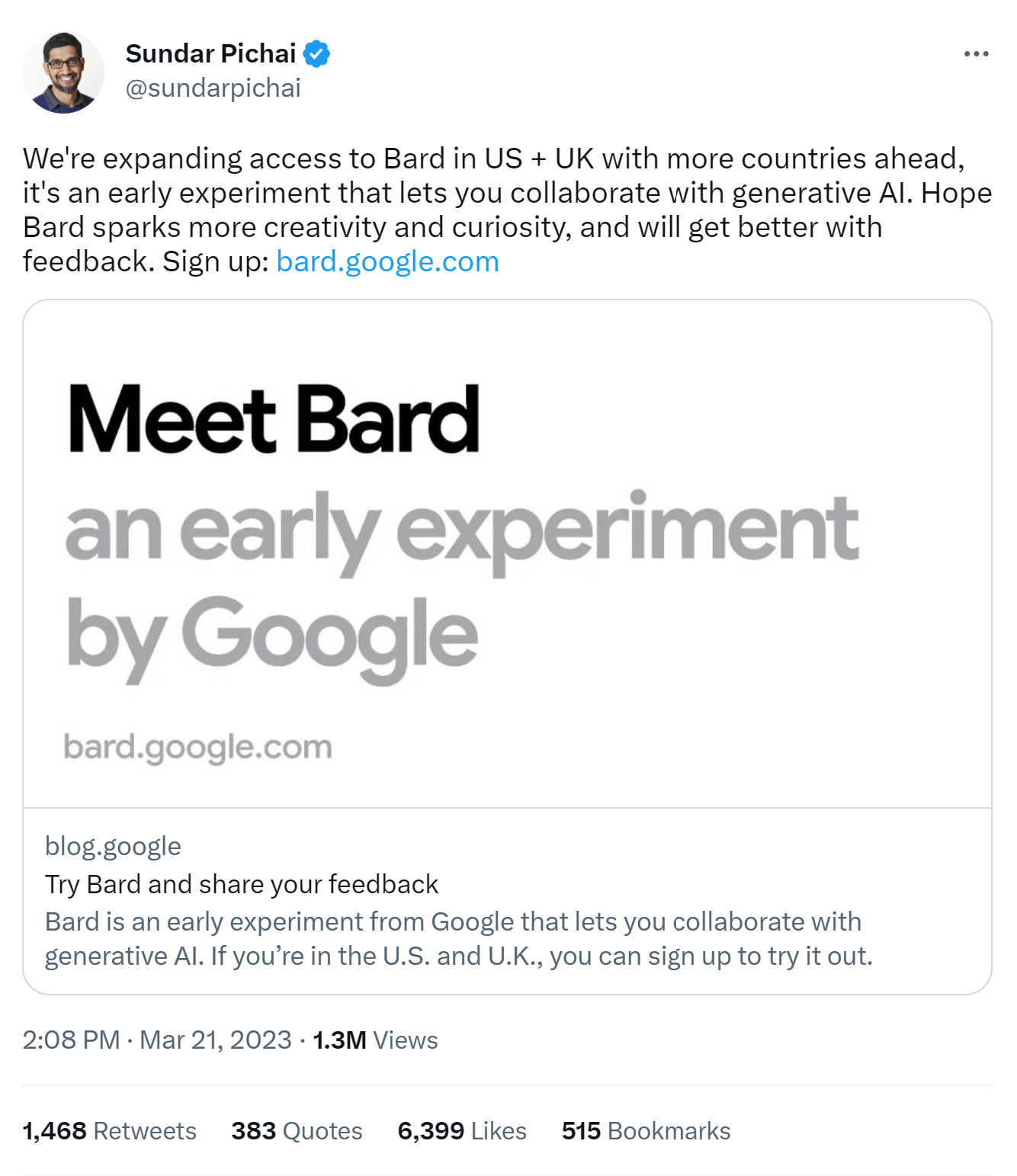Bard is Google's generative AI model and their answer to ChatGPT. We took it for a quick spin on its launch day to see if it can hold a candle to ChatGPT.
Google announced that Bard was being rolled out in the US & UK on 22/03/202.
We're expanding access to Bard in US + UK with more countries ahead, it's an early experiment that lets you collaborate with generative AI. Hope Bard sparks more creativity and curiosity, and will get better with feedback. Sign up: https://t.co/C1ibWrqTDr https://t.co/N8Dzx1m0fc
— Sundar Pichai (@sundarpichai) March 21, 2023
We got access quickly to Bard, about 4 hours after joining the waitlist.
Initial things we noted about Bard:
- Bard doesn't have the ability to converse the same as ChatGPT, the system doesn't use previous messages for responses. Google has said this is a conscious decision whilst they roll it out.
- Bard currently doesn't have much training on Code and so can't help you with that pesky SQL query you can't quite nail.
- The instance is very clean, and the branding is clearly good but it is a simple chat interface similar to that being used by lots of AI systems.
- Currently, as far as we are aware, there is no API access available but this should change soon.
How good are Bard's Responses?
We felt the responses were good for a one-shot message with no context of historic messages.
The lack of historic message context puts it on a par with how GPT-3 worked prior to the release of ChatGPT.
At the moment it just lacks some of the utility that ChatGPT can bring through its more back and forth reasoning that allows you to hone in on a good response to your problem.
Here's what we got when we asked if it could help us write a blog.

Here's the response we got when asking for content about a particular subject, we felt it was a pretty good response.

Google clearly isn't comfortable with something about their AI, they've been very hesitant about it since the start of the AI race. Bard has a warning that it may produce content they don't agree with.
![]()
Overall our opinion is that Google's Bard is probably 3-6 months behind ChatGPT when considering the powerful capabilities that GPT-4 is showing, OpenAI's API and the general suite of AI tools such as Fine Tuning on offer from OpenAI.
We are sure that Google is holding a lot back in this current iteration as it tests the waters but it does also seem there are some weak points for Bard, like the ability to handle Code, that suggests they've still got work to do.
That being said, with their resources and an increased level of training data from a wider user base they could accelerate the AI's learning if its fundamentals are good.
We are going to keep experimenting with Bard and will likely do an update in the future and as more developer options become available we'll do a more in-depth review of its capabilities v OpenAI for developers.
We'd recommend giving it a try, you can sign up for the waitlist here:
